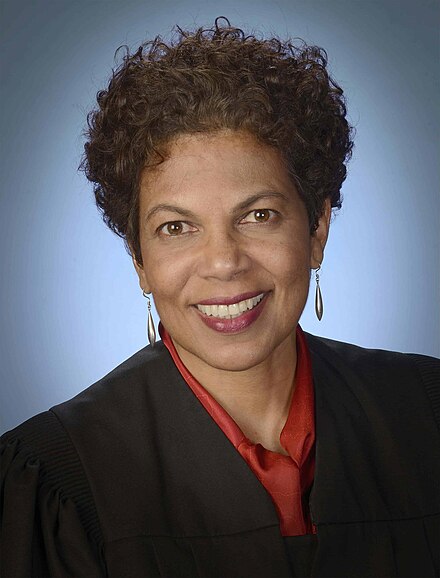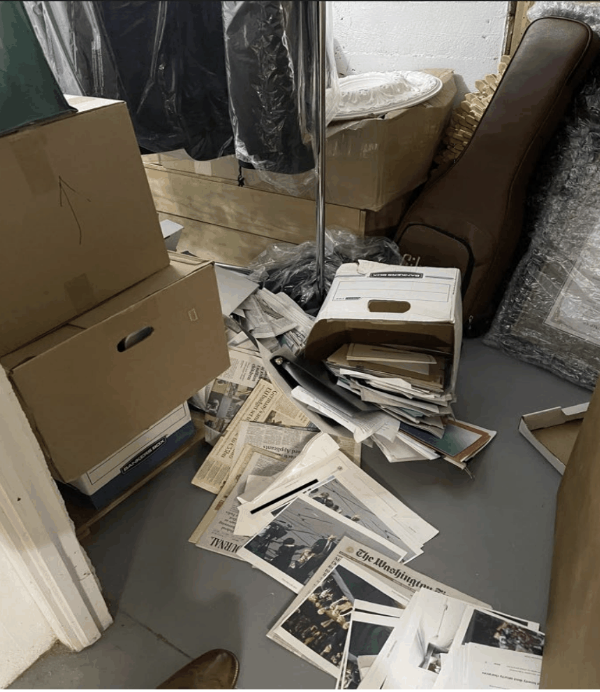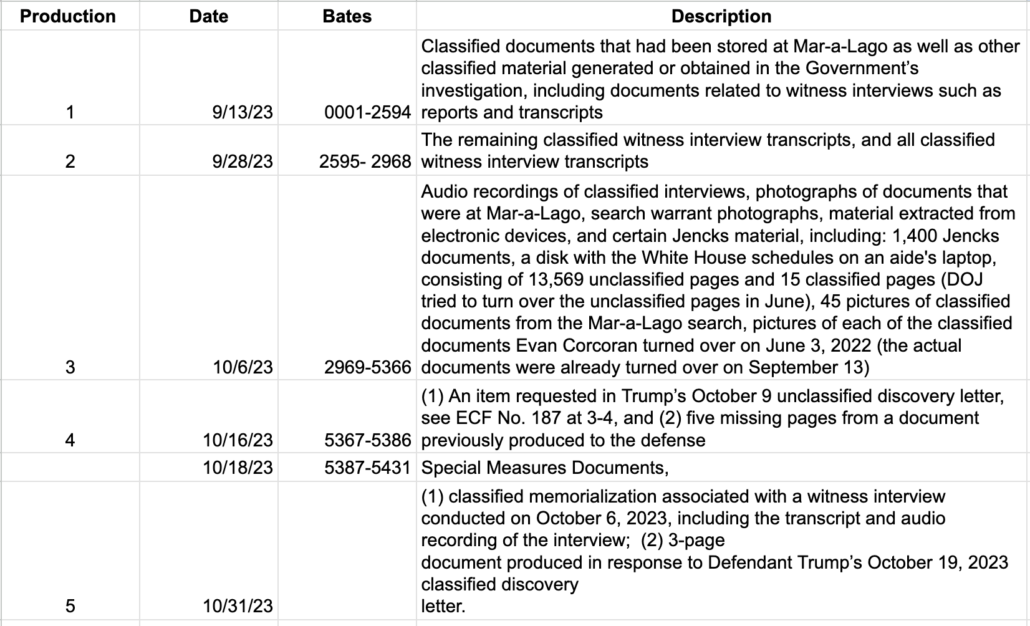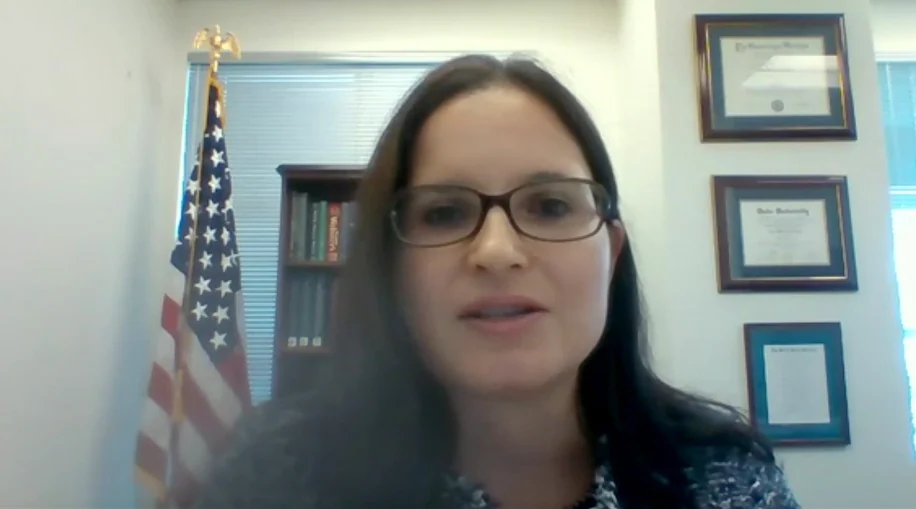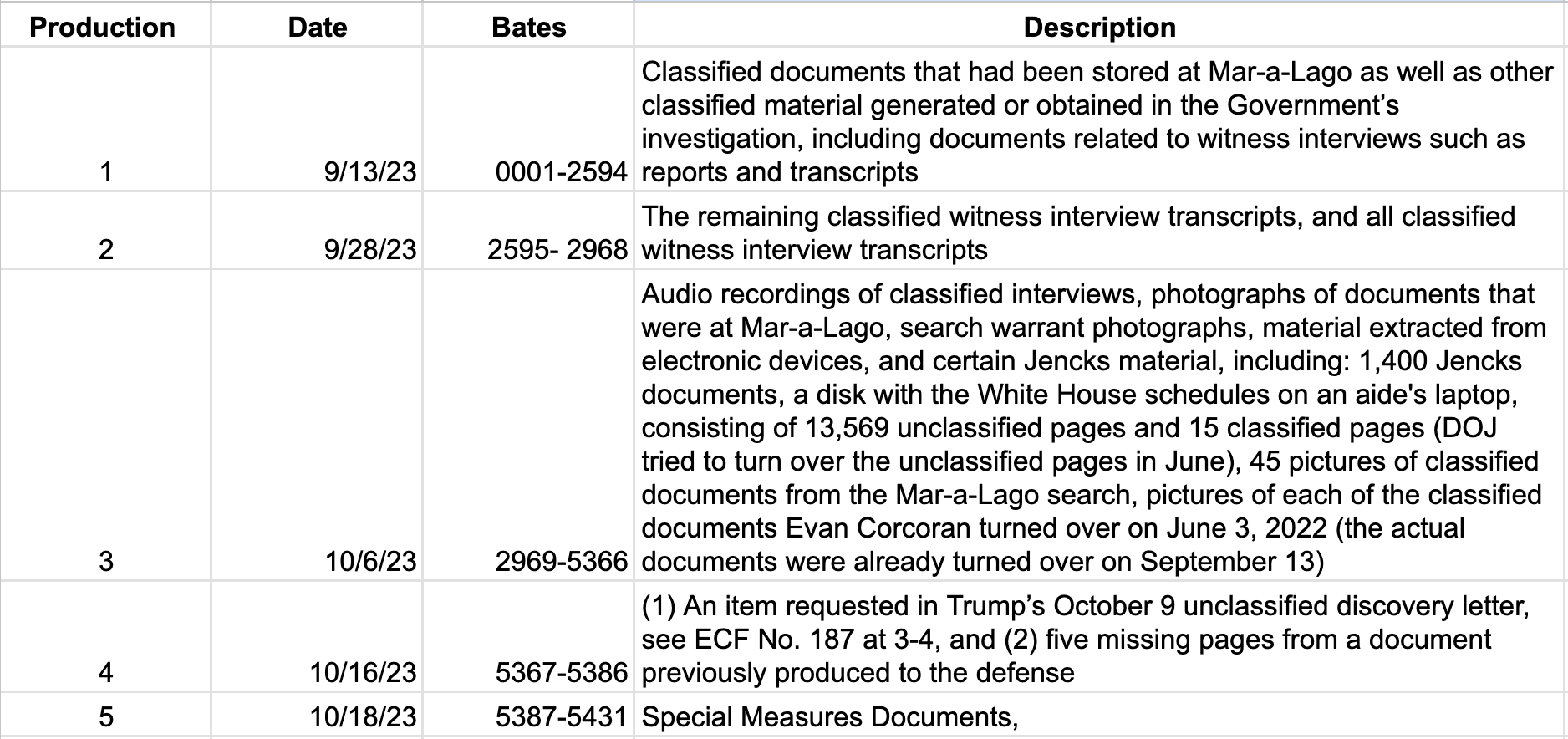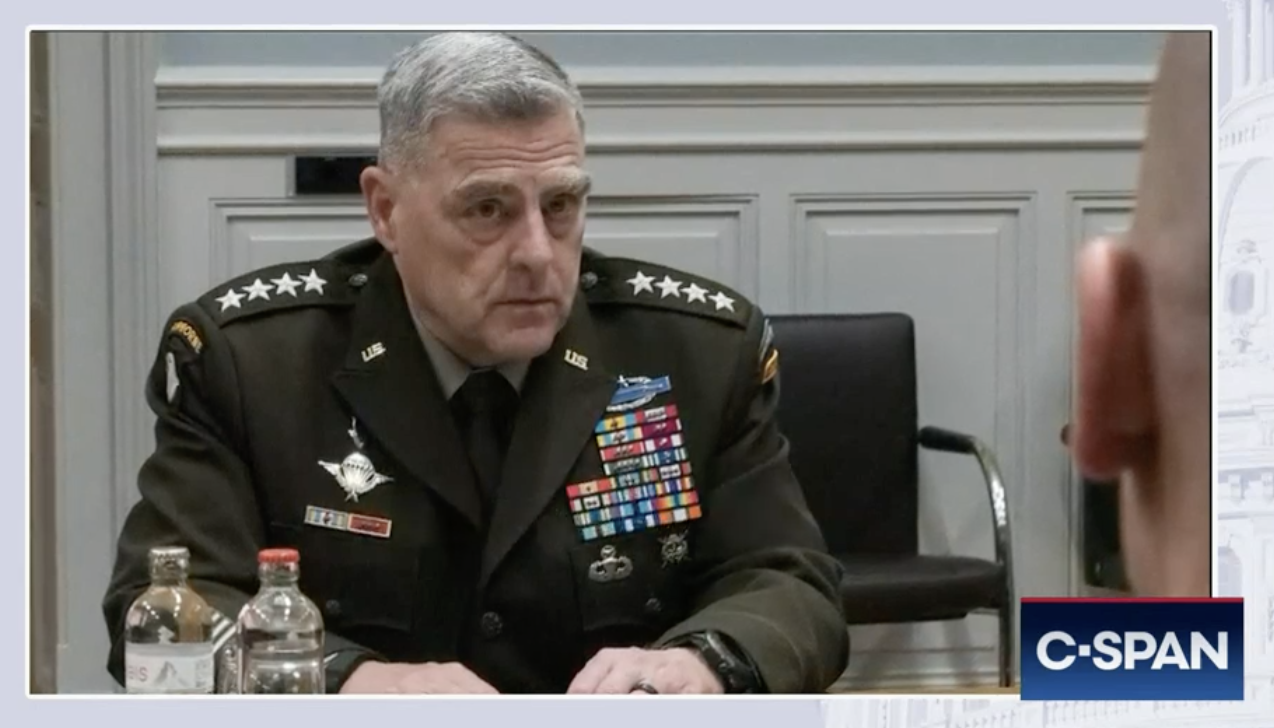As part of Trump’s attempt (with some, albeit thus far limited, success — Judge Chutkan already gave Trump a small extension, and Judge Cannon has halted CIPA deadlines) to stall both his federal prosecutions by complaining about the Classified Information Protection Act, both sides have submitted recent filings that provide some additional details about the classified discovery in his two cases.
Among other things, the filings seem to suggest that Donald Trump was caught storing other documents about US nuclear programs at his beach resort, in addition to the one charged as count 19 of his indictment.
January 6 Election Intelligence
In Trump’s January 6 prosecution, the government’s response to Trump’s bid to delay the CIPA process described the classified evidence Trump’s team had reveiwed in the case this way:
Defense counsel responded that they anticipated review the week of September 25, and later the date was finalized for September 26. Due to the classification levels of certain of the discovery material, the CISO conducted additional read-ins that morning for Mr. Blanche, the Required Attorneys, and the Required Paralegal, and the defense was provided the classified discovery around 10:35 a.m., except for one further controlled document that was provided around 2:30 p.m.
The classified discovery reviewed by the defense consisted of approximately 975 pages of material: (1) a 761-page document obtained from the Department of Defense, the majority of which is not classified;1 (2) an FBI-FD 302 of the classified portion of a witness interview for which the Government already provided a transcript of the unclassified portion, as well as attachments, totaling 52 pages; (3) a 12-page document currently undergoing classification review by the Department of Defense; (4) the 118-page classified transcript the Government described at the CIPA § 2 hearing on August 28; and (5) a further controlled document that is a classified version of a publicly-available document produced in unclassified discovery that contains the same conclusions.2
1 The Government did not include this document in its page estimate at the CIPA § 2 hearing, only later determining that in an abundance of caution the entire document should be produced in classified discovery, even though—as indicated by page and portion markings—the majority of it is not classified. In its cover letter accompanying the classified discovery production, the Government made clear its willingness to discuss producing the unclassified pages and portions in unclassified discovery.
2 See Bates SCO-03668433 through SCO-03668447 (produced to the defense in the first unclassified discovery production on August 11, 2023).
Trump’s reply appears to have described what two of these — item 1 and item 5 (and possibly also item 3, which may have been included as part of item 1) — were.
Item 5 consists of the classified version of the Intelligence Community’s Foreign Threats to the 2020 Election publicly released in March 2021.
The Special Counsel’s Office alleges that the Director of National Intelligence “disabused” President Trump “of the notion that the [USIC’s] findings regarding foreign interference would change the outcome of the election.” (Indictment ¶ 11(c)). The Office points out that these “findings” are set forth in a “publicly-available version of the same document that contains the same ultimate conclusions.” (Opp’n at 12). This is a reference to the unclassified version of the National Intelligence Council’s March 2021 Report titled “Foreign Threats to the 2020 US Federal Elections” (the “Report”).3
3 The unclassified Report is available at: https://www.dni.gov/files/ODNI/documents/assessments/ICA-declass-16MAR21.pdf
Trump is demanding that DOJ provide details of every actual compromise during the 2020 election — things like Iran’s effort to pose as Proud Boys to suppress Democratic votes — in order to support his claim that the classified evidence in this case is more central than it is.
Item 1 appears to include a bunch of materials that Mark Milley had preserved about the fragile state of the country and — even more so — Trump after the attack.
The Special Counsel’s Office has sufficient access to the files of the Department of Defense (“DOD”) to produce to President Trump two documents, totally [sic] approximately 773 pages, that the Office “obtained” from DOD. (Opp’n at 5). It appears, however, that there is a larger set of relevant DOD holdings, which the Office must review and make any necessary productions required by Rule 16, Brady, Giglio, and the Jencks Act.
In November 2021, General Mark Milley told the House’s January 6 Select Committee that “we have a boatload of documentary stuff . . . both classified and unclassified stuff. And I will make sure that you get whatever we have. And it’s a lot.” (Tr. 10).6 In response to a question about a particular document, General Milley volunteered that he had overclassified a large volume of relevant material:
I classified the document at the beginning of this process by telling my staff to gather up all the documents, freeze-frame everything, notes, everything and, you know, classify it. And we actually classified it at a pretty high level, and we put it on JWICS, the top secret stuff. It’s not that the substance is classified. It was I wanted to make sure that this stuff was only going to go people who appropriately needed to see it, like yourselves. We’ll take care of that. We can get this stuff properly processed and unclassified. (Tr. 169).
In addition to the above-referenced classified documents “obtained” from DOD, the Special Counsel’s Office has produced nearly a million pages of documents from the House Select Committee. But it is not clear that those materials include any of the classified documents referenced by General Milley during his testimony, or whether the Office has even reviewed those materials.
6 The transcript is available at: https://www.govinfo.gov/content/pkg/GPO-J6-TRANSCRIPTCTRL0000034620/pdf/GPO-J6-TRANSCRIPT-CTRL0000034620.pdf.
What Trump accuses Milley of overclassifying appears to have been, instead, classified to prevent detrimental things said about Trump — including by his Chief of Staff — from being shared publicly. As Milley described to the January 6 Committee. he made a point of preserving all of it because he understood the significance of January 6.
So what I saw unfold on the 6th was disturbing, to say the least, and I think it was an incredible event. And I want to make sure that whatever information I have and I can help you determine facts, atmospherics, opinions, whatever, determine lines of inquiry. In any manner, shape, or form that I or the Joint Staff can help, I want to make sure that we do that, because I think the role of the committee is critical to prevent this from ever happening again.
[snip]
We also have — and I want to make sure that you know that we have and we’ll provide it to you, the Joint Staff — we have a boatload of documentary stuff. I think we provided a bunch of emails, which is good. We have both classified and unclassified stuff. And I will make sure that you get whatever we have. And it’s a lot. We have it in binders.
Immediately following the 6th, I knew the significance, and I asked my staff, freeze all your records, collate them, get them collected up. I had one of the staff, a J7, you 10 know, package it up, inventory it, put it all in binders and 11 all that kind of stuff. So we have that, and you’re welcome to all of it, classified and unclassified. And I want to make sure that everything is properly done for the future. That’s very important to me.
The materials include — again, per Milley’s testimony — commentary from people like Mark Meadows and Christopher Miller about Trump’s state on January 7.
General Milley. So where was I? Oh. Anyway, so general themes: steadiness overseas, constantly watching Iran, North Korea, China, Russia, terrorists. Venezuela, by the way, was another one. So there’s a series of these potential overseas crises. In several of the calls — and my theme was I sounded like a broken record: Steady, breathe through your nose, we’re going to land the — we’re going to 4 land this thing, peaceful transfer of power. That was a constant message of mine. And both Pompeo and Meadows didn’t push back on that at all. It was “roger that” sort of thing.
So, now, there was a couple of calls where, you know, Meadows and/or Pompeo but more Meadows, you know, how is the President doing? Like, Pompeo might say, “How is the President doing,” and Meadows would say, “Well, he’s in a really dark place,” or “he’s” — you know, those kind of words. I’d have to go back to some notes to get the exact phrasing, but that happened a couple different times.
I’m looking for — on this timeline, like, here is one, for example, on the 7th of January, so this is the day after, right? “It’s just us now.” And I can’t remember if it was Pompeo or Meadows that said that, but I didn’t say it. “It’s just us now.” In other words, it’s just the three of us to land this thing. I’m, like, come on, man. This is — there’s millions of people here. But anyway. I’m not trying to be overly dramatic, but these are quotes. “POTUS is very emotional and in a bad place.” Meadows . So that – – that’s an example. Same day, different meeting with Acting SecDef Miller.” POTUS not in a good spot.” Whatever that means.
Ms. Cheney. Uh-huh.
General Milley. You know, these aren’t my words. These are other people’s words. Kellogg, same day, seventh phone call: “Ivanka was a star.” “She’s keeping her father calm.” “Everyone needs to keep a cool head.” So it’s the — you know, it’s comments. These are just phrases, but there’s–
Ms. Cheney. Yeah.
General Milley. there’s conversations like that, and, you know, for me, as the Chairman, I’m, like, hmmm. So all I’m trying to do is watch my piece of the pie. I’m not in charge of anything. I just give advice and just trying to keep it steady.
Ms. Cheney. I know we have to take a break, General Milley, and the camera is not working here, so I can’t see you guys, but are the notes that you’re reading from, are those notes that we have? Are they in the exhibits, or are those notes that we can get if we don’t?
General Milley. No. We can — I can provide them. I’ll swear to it, you know, that kind of thing if I need to do an affidavit on whatever you want.
[Redacted] And I think this is in a classified production.
General Milley. Those notes came from the timeline that I produced to the Joint Staff, essentially.
Ms. Cheney. Yeah.
General Milley. On this timeline, it’s actually classified, but, again, almost all of the substance is it not classified. The document I classified the document at the beginning of this process by telling my staff to gather up all the documents, freeze-frame everything, notes, everything and, you know, classify it. And we actually classified it at a pretty high level, and we put it on JWICS, the top secret stuff. It’s not that the substance is classified. It was I wanted to make sure that this stuff was only going to go people who appropriately needed to see it, like yourselves.
We’ll take care of that. We can get this stuff properly processed and unclassified so that you can have it —
[Redacted] That would be great.
Trump is demanding this stuff under Rule 16 (the defendant’s own statements), Brady (exculpatory evidence), Giglio (deal made with other witnesses), and Jencks Act (statements by potential government witnesses). Trump is asking for all memorializations that Milley or anyone else made of things Trump said — and he’s preparing to claim that that amounts to exculpatory evidence.
And both the review of this memorialization and the court filings happened after Trump threatened to execute Milley on September 22, Trump’s treatment of it — and his claim that Milley overclassified it — can’t be taken in isolation from it, especially given the inclusion of the Iran attack document, which Trump was showing off at Mar-a-Lago even before Milley’s January 6 testimony — in the superseding stolen documents indictment.
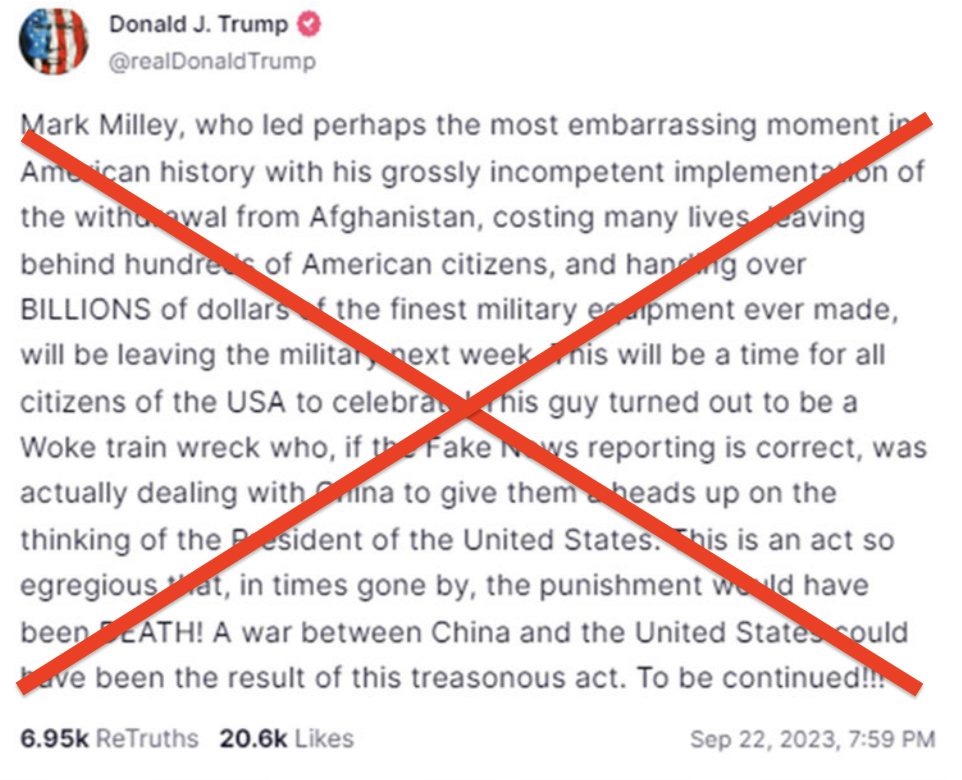
That is, having discovered that Milley preserved the crazy things Trump said and the crazy Trump’s most loyal aides said about Trump, Trump wants to make that a centerpiece of his graymail attempt, preparing a claim that the very act of memorializing all this amounts to disloyalty, all while arguing that he needs it to discredit Milley or Meadows or anyone else involved if they testify at trial.
Stolen Documents
In the stolen documents case, classified material is obviously more central to Trump’s alleged crimes and the sensitivity of the materials involved is much greater. Even though there have been some sound educated guesses as to what the charged documents include, it’ll be months before we get real detail at trial.
Nevertheless, the competing claims about classified discovery have provided some new details about the documents charged against Trump — specifically, regarding ten documents that, for two separate reasons, held up reviews by Trump’s lawyers. at the SCIFs in Florida being used for the case.
As Trump laid out in his reply to his bid to delay the trial, at first five, then another four of the documents charged against him were not placed in the SCIF in Miami Trump has been using, because they are so sensitive — though are available in a SCIF in DC. In addition, there was one document that only recently became available in that SCIF.
Nine of the documents charged in the 32 pending § 793(e) counts, as well as “several uncharged documents,” are not available to the defense in this District. (Opp’n at 6).4 The document relating to Count 19 was made available to President Trump for the first time late in the afternoon of October 3, only after counsel left the District following two days of review at the temporary Miami SCIF.
4 As we understand it, documents relating to Counts 6, 22, 26, and 30 have been relocated to the District of Columbia at the request of the documents’ “owners.” (See Opp’n at 6-7 n.4). The documents relating to Counts 5, 9, 17, 20, and 29 are not available to President Trump or counsel at any location.
The one document that only recently became available is the single charged document classified under the Atomic Energy Act — here, marked as FRD or “Formerly Restricted Document.”
- Document 19: [S/FRD] Undated document concerning nuclear weaponry of the United States; seized in August 8, 2022 search.
As noted here, because it was classified under the Atomic Energy Act, Trump could not declassify it unilaterally, which is undoubtedly why it was charged.
As the government described in its response to this CIPA request on September 27, the presence of one particular charged document and several uncharged documents which required some specific clearance had meant Trump’s lawyers couldn’t get into the SCIF at all, until the Information Security Officer withdrew them, which she or he did on September 26.
The Government has recently been informed that multiple defense counsel for Trump now have the necessary read-ins to review all material in the Government’s September 13 production, with the exception of a single charged document and several uncharged documents requiring a particular clearance that defense counsel do not yet possess. The Government understands that the presence of these documents in the set of discovery available in the defense SCIF in Florida had prevented the defense from gaining access to a safe containing a subset of classified discovery when the defense reviewed the majority of the September 13 production during the week of September 18, 2023. On September 26, at the Government’s request, the CISO removed the documents requiring the particular clearance from the safe so that the remainder of the subset would be fully available to Trump’s counsel.
If, as seems likely, document 19 was the one had to be withdrawn until all lawyers got an additional clearance, it suggests the other uncharged documents were also classified under the AEA. If so, it would mean FBI discovered additional US nuclear documents, potentially included ones that remain restricted, found at Mar-a-Lago but have not been charged.
These are the five that were always given that special handling, treating them as too sensitive to be placed in the SCIF in Miami.
- Document 5: [TS//[REDACTED]/[REDACTED]//ORCON/NOFORN] Document dated June 2020, concerning nuclear capabilities of a foreign country; seized in August 8, 2022 search.
- Document 9: [TS//[REDACTED]/[REDACTED]//ORCON/NOFORN/FISA] Undated document concerning military attacks by a foreign country; seized in August 8, 2022 search.
- Document 17: [TS//[REDACTED]/TK/ORCON/IMCON/NOFORN] Document dated January 2020 concerning military capabilities of a foreign country; seized in August 8, 2022 search.
- Document 20: [TS//[REDACTED]//ORCON/NOFORN] Undated document concerning timeline and details of attack in a foreign country; seized in August 8, 2022 search.
- Document 29: [TS//[REDACTED]//SI/TK//ORCON/NOFORN] Document dated October 18, 2019, concerning military capabilities of a foreign country.
And these are the four that were initially placed in the Miami SCIF, but later withdrawn after a request by the document originators.
- Document 6: [TS//SPECIAL HANDLING] Document dated June 4, 2020, concerning White House intelligence briefing related to various foreign countries; seized in August 8, 2022 search.
- Document 22: [TS//[REDACTED]//RSEN/ORCON//NOFORN] Document dated August 2019, concerning military activity of a foreign country; turned over on June 3, 2022.
- Document 26: [TS//[REDACTED]//ORCON//NOFORN/FISA] Document dated November 7, 2019, concerning military activity of foreign countries and the United States; turned over on June 3, 2022.
- Document 30: [TS//[REDACTED]//ORCON/NOFORN/FISA] Document dated October 15, 2019, concerning military activity in a foreign country; turned over on June 3, 2022.
Here’s how Jack Smith’s team described these documents.
As noted above, a small collection of highly sensitive and classified materials that Trump retained at the Mar-a-Lago Club are so sensitive that they require special measures (the “special measures documents”), including enhanced security protocols for their transport, review, discussion, and storage. The special measures documents constitute a tiny subset of the total array of classified documents involved, which is itself a small subset of the total discovery produced. From the outset of this case, the SCO and the CISO have been aware of some of the special measures documents, but only recently, the SCO and the CISO learned that others—still constituting a small fraction of the overall discovery—fall into that category as well.
[snip]
To be sure, the extreme sensitivity of the special measures documents that Trump illegally retained at Mar-a-Lago presents logistical issues unique to this case. But the defendants’ allegations that those logistical impediments are the fault of the SCO are wrong. The defendants’ claim that the SCO has failed “to timely remedy the situation,” ECF No. 167 at 2, or “to make very basic arrangements in this District,” id. at 4, proceeds from the false premise that the SCO controls the situation—it does not. Nonetheless, the SCO has also offered to—and did—make a facility available to the defense in Washington, D.C., that can accommodate the review and discussion of all the discovery in this case, including the special measures documents.
What’s interesting about this collection is how they compare and contrast with others of the 32 documents charged.
For example, these documents are not being treated with greater sensitivity because they were subject to Special Handling requirements likely related to contents of the Presidential Daily Briefs; several other charged documents (eg, 1, 2, and 4), in addition to document 6, were subject to Special Handling.
Matt Tait and Brian Greer had speculated that some of these — documents 26, 29, and 30 — might be part of a cluster of related documents, but others that similarly date to October and November 2019 are not being treated with this same special handling.
Most of these documents include special compartments (reflected by the [REDACTED] classification mark(s)), but document 6 does not. That said, all the documents with such redacted compartments are being treated with that special handling. So perhaps the most likely explanation is that document 6 reflects Trump getting briefed on something outside the scope of a formal document, which therefore didn’t have the appropriate compartment marks.
Whatever explains it, someone doesn’t trust these documents to be stored in a SCIF in Miami.


